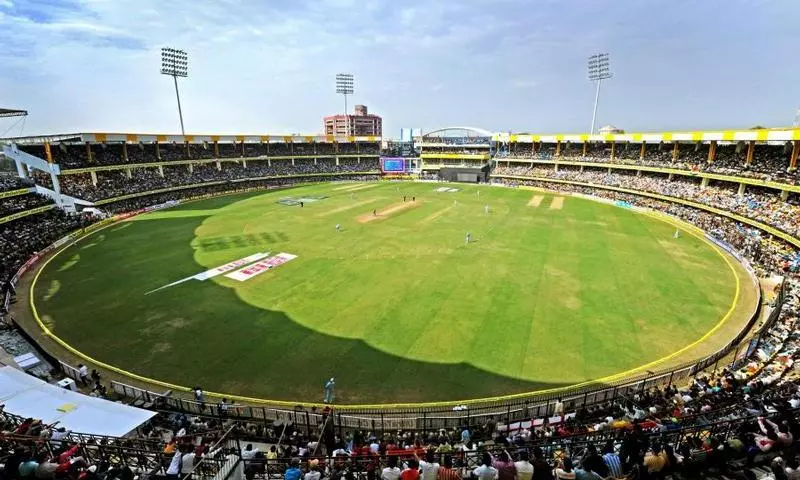
BCCI to come under National Sports Governance Bill like other federations
Bill, to be tabled in Parliament on July 23, requires BCCI to take recognition from National Sports Board, aims for timely polls, accountability, player welfare

The Board of Control for Cricket in India (BCCI), which is a private and autonomous organization, will come under the purview of the National Sports Governance Bill that is set to be introduced in Parliament on Wednesday (July 23).
Though the BCCI doesn’t take funding from the government, it will be required to take recognition from the proposed National Sports Board (NSB).
“Like all National Sports Federations (NSFs), the BCCI will have to comply with the law of the land once this Bill becomes an Act. They don’t take ministry funding but an Act of Parliament applies to them,” news agency PTI quoted a top Sports Ministry source as saying on Tuesday.
What changes for BCCI?
The BCCI will continue to remain an autonomous body — like all the other NSFs — but in the case of any disputes, the proposed National Sports Tribunal (NST) will become the resolution body for all sports matters, “ranging from elections to selection”, PTI reported.
The source clarified to PTI that the Bill does not imply government control on BCI or any other NSF. “The government will be a facilitator in ensuring good governance, not an enforcer,” the source claimed.
The BCCI is now a part of the Olympic movement after cricket was included in the 2028 Los Angeles Games where it will be played in the T20 format.
Also read: 'Destroyed careers of 7 players after 2011 WC triumph': Yograj Singh slams BCCI
About the Sports Governance Bill
The Sports Governance Bill seeks to institutionalise a strong framework for timely elections, administrative accountability, athlete welfare, and reduction in litigation through a slew of measures.
The NSB, appointed entirely by the central government, will have sweeping powers to grant and even suspend the recognition of federations based on complaints or “its own motion” for violations ranging from electoral irregularities to financial misappropriation.
The Bill makes some concessions on the thorny issue of age cap of administrators by allowing those in the bracket of 70 to 75 to contest elections if the international bodies concerned do not object. In electoral matters, the Bill will accept the “supremacy” of the Olympic Charter and the statutes of the International Federations.
NSB membership
The proposed NSB will comprise a chairperson, and its members will be appointed by the central government from “amongst persons of ability, integrity and standing”. The appointments will be done based on the recommendations of a search- cum-selection committee, according to the Bill that has been finalised after extensive consultations with stake-holders and public inputs.
The selection committee would be made up of the Cabinet secretary or sports secretary as the chairperson, the director general of the Sports Authority of India, two sports administrators who have each served as the president or secretary general or treasurer of a national sports body, and one eminent sportsperson who is a Dronacharya, or Khel Ratna or Arjuna awardee.
“This is an athlete-centric Bill which will ensure stable administration, fair selection, safe sports and grievance redress, NSF audits, proper accounting and better fund management,” PTI quoted the ministry source.
“The NST will ensure that there is no career damage to athletes due to delayed court cases. Even now, 350 different court cases are in progress where the ministry is a party; this needs to end,” the source emphasised.
Also read: Explained: BCCI’s equal pay move and the huge gap that still remains
NSB’s powers
As mentioned in the draft released last year, the NSB will have the power to grant recognition to NSFs and even constitute ad-hoc panels to run individual sports in case an NSF is suspended.
It would also be mandated to “collaborate” with International Sports Bodies for welfare of athletes in India and to issue guidelines to NSFs for ensuring compliance with international standards.
All these duties have so far been the domain of the Indian Olympic Association (IOA), which acted as the nodal body for NSF-related matters.
The NSB has been empowered to de-recognise a national body that fails to hold elections for its executive committee or has committed “gross irregularities in the election procedures”.
In addition, failure to publish annual audited accounts or “misused, misapplied or misappropriated public funds” would also invite suspension from the NSB but it would be required to consult the concerned global body before proceeding.
IOA's change of heart
The NSB was vehemently opposed by the IOA at the consultation stage and was described as government interference that might invite sanctions from the International Olympic Committee (IOC).
However, Sports Minister Mansukh Mandaviya has asserted that the IOC has been duly consulted while drafting the document. A harmonious relationship with the IOC would be crucial for India’s bid to host the 2036 Olympic Games.
“Everyone is on board now. This bill explicitly aligns with the Olympic charter, and even the IOC feels that good work has been done in framing it,” the source told PTI.
Also read: BCCI to enforce stricter norms for players taking wives on overseas tours: Report
About the tribunal
The proposed NST seeks to provide “independent, speedy, effective and cost-efficient disposal of sports-related disputes”. A ruling by the NST can only be challenged in the Supreme Court,” the ministry source said.
It will comprise a chairperson and two other members. The head would be a sitting or retired judge of the Supreme Court or the chief justice of a high court.
The appointments would once again be in the hands of the central government based on recommendations of a committee that will be headed by the Chief Justice of India or a Supreme Court judge recommended by the CJI.
The central government will have the power to remove its members in the case of violations, including financial irregularities and actions prejudicial to “public interest”.
(With agency inputs)

